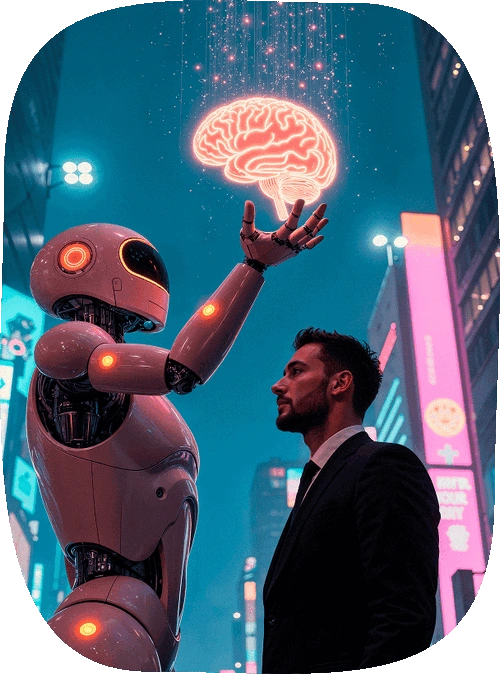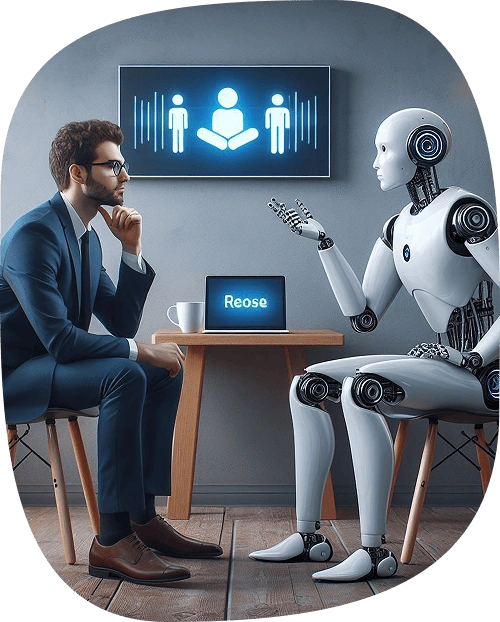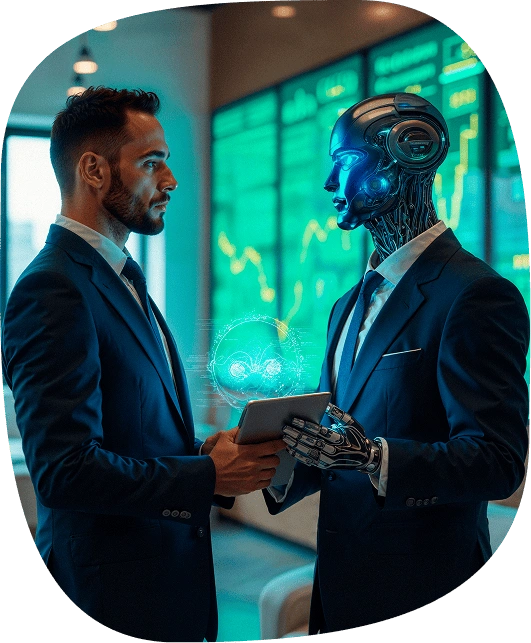impact of AI on employment
AI and the future of work , will AI replace jobs, AI Impact on Jobs, AI Taking over Jobs, Jobs that AI will replace, Jobs that AI can’t replace
Discover how AI is transforming the job market in 2025. Learn about emerging roles, skill demands, and how to stay relevant in an AI-driven workforce.
Since January, more than 21,000 IT professionals have been laid off in India—across Microsoft, Intel, and TCS. This is part of a larger global trend involving dozens of tech companies, including Google and Amazon. The impact of AI on employment has been compared to entire industries going out of business after the invention of the printing press or the automobile. In 2025, the job market has been undergoing a shift with traditional ‘safe’ jobs in IT and other industries becoming more competitive than ever.
With increasing layoffs and hiring freezes, there are apprehensions about AI and the future of work—especially among college students and fresh graduates looking for jobs. What could the job market look like over the next few months? Will AI replace jobs?
The truth lies somewhere in the middle. While AI’s impact on jobs is undeniable, it brings with it many opportunities, too. Want to know what they are?
In this blog, we’ll demystify how AI is reshaping the job market in India and use the latest data to predict:

Impact of AI on employment: Outlook for 2025
There is still some debate about whether the recent layoffs in the IT sector occurred due to AI automating entry-level jobs. Some reports say this is merely a correction by tech companies that hired more people than necessary after the pandemic. Is there is a clear correlation between AI and the future of work? Let’s examine the recent employment trends in the following key sectors for a clue:
Manufacturing
In India, hiring for traditional blue-collar jobs and engineering positions remains stable. Though businesses are looking to integrate the latest tech best practices, which can increase demand for IT specialists over time.
Overall trend: Bulk hiring is reducing with a focus on skill-based hiring. Hiring for IT/AI positions is in the early stages.
IT and ITES
In 2025, the IT industry in India is seeing massive demand for AI and ML roles. The latest data shows this is the fastest-growing job category in India. Software engineers continue to remain in demand, but the most growth is happening across AI and ML roles.
Overall trend: Hiring continues for entry-level roles, AI, and ML
Slow demand: Coding and IT support roles
Banking and Finance
Current trends indicate that AI could transform 30% to 40% of banking roles in the future. Currently, hiring is slow across the banking industry in India—the focus is on AI talent as banks move toward digital (also called Neo Banks) banking and other digital services.
Overall trend: Hiring for entry-level jobs remains slow. Hiring for AI/ML talent is increasing.
AI Impact on Jobs: Jobs That AI Will Replace vs Jobs That AI Can’t Replace
Microsoft has come up with a research report on AI and the future of work. Based on Copilot AI’s (Microsoft Bing’s AI assistant) responses to user queries, this study highlights jobs that AI will replace and jobs that AI can’t replace. A team of researchers assessed the applicability of AI to specific job roles based on how accurately Copilot answered their queries.
By correlating user goals and AI output, the team showed how likely it was for AI to automate jobs across a wide range of industries.
Jobs AI Will Replace (In the Short to Medium Term)
The study shows that jobs requiring manual labor, or human interaction cannot be automated by AI. Here are the jobs AI is likely to replace faster than others:
Jobs AI Won’t Replace (For the Foreseeable Future)
Now, let’s look at jobs that AI is not likely to replace in the near future. It’s no surprise that AI is not a good fit for jobs requiring manual dexterity or extensive technical knowledge. Here are a few job roles that are generally not replaceable, according to the study.
Impact of AI on Employment: What the Future Holds
It is clear that AI will automate several jobs, including data entry and bank clerical positions, BPO executives, software testers, and back-office roles. However, it does not necessarily mean humans will no longer be required in these fields.
The future belongs to those who can develop AI skills to increase productivity and innovation—while focusing on ideas and strategy, something AI cannot do. Soft skills like empathy, problem-solving, communication and other human skills will be even more important in the job market of the future. It could help you differentiate yourself from the competition.


Give Your Job Search a Boost with GroYouth
As AI reshapes the job market, traditional job-hunting techniques are increasingly outdated. Applying to any job in sight on job portals or LinkedIn and hoping for success may or may not work. Leverage the power of AI to attract the right jobs to you via GroYouth. Our AI-powered platform assesses your strengths, weaknesses, interests, and educational background, matching you automatically with top job opportunities.
Need additional help? Our team helps you chart your career journey through personalized career counseling, interview prep, and guaranteed interviews—building confidence and clarity.
Sign up today or contact us for more information.




